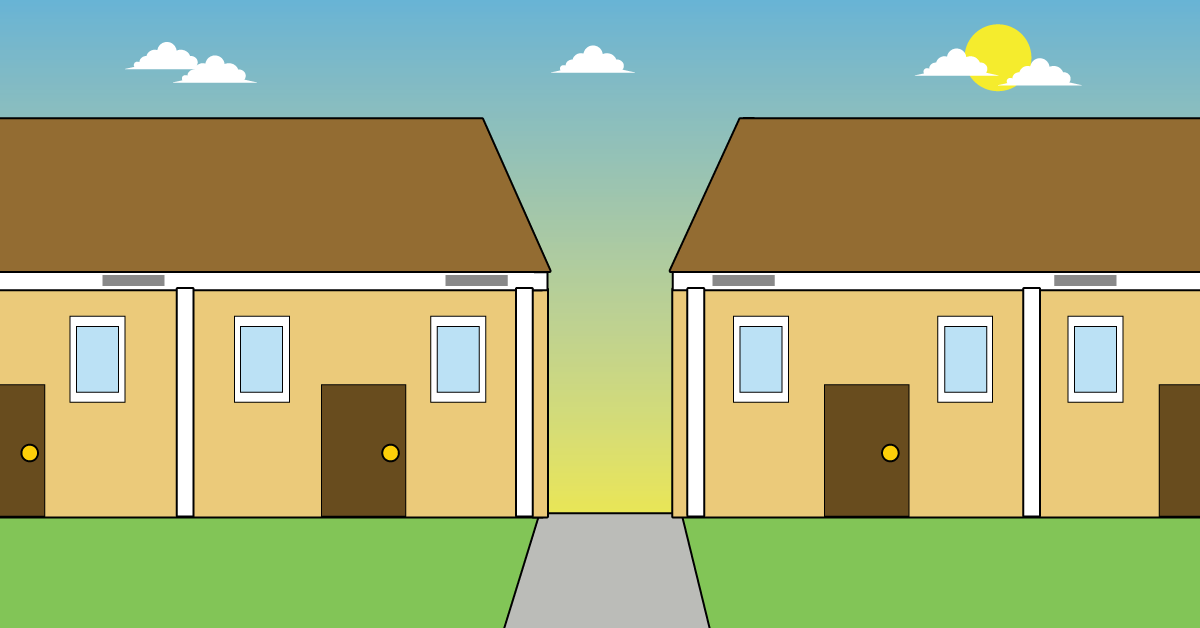Being Poor vs. Feeling Poor
Growing up, I knew our family didn’t have much money. Our apartment was small, my mom prepared food for a tiny catering company, and my dad was abroad trying to get his small business off the ground. By all financial measures, we were poor.
But here’s the thing: I never felt poor.
Part of the reason was that I never got sucked into the comparison game of material wealth. Many of my friends lived in large homes, but to me, that was a source of joy rather than jealousy. I figured that my friends having large houses just meant that we would have a lot of fun hanging out there. And when it was time to go home, it was simply a return to the warm space that I shared with my family.
The other reason was the neighborhood I lived in. Many of my neighbors also worked in the same catering company as my mom, which meant that there was an aura of familiarity that connected us all. My mom’s friends had kids that were roughly around the same age as I was, so we hung out all the time. We went to play basketball at the nearby park, we would watch movies at each other’s places, and would enjoy Korean BBQ dinners together on various nights.
When I think back on this time, I recall it with fondness. Even though we were under financial stress, my parents and my neighborhood never made it feel like we were. I had everything I needed and wanted. I had all the resources I required to do well at school too, so I never felt underprivileged there either.
This highlights the distinction between being poor and feeling poor. One is a factual claim that could be made using a number and its relationship to the poverty line. The other is something that can’t be quantified in any rational way, and is entirely dependent on one’s state of mind and its connection with others.
One interesting phenomenon that’s been occurring in the United States is that poverty has been decreasing while incomes amongst the wealthiest have been increasing. At first glance, this may seem like a win-win. If more people are escaping poverty and the wealthy are earning more, doesn’t that seem like a non-zero-sum game?
Well, the answer is no, and there are two reasons for this.
The first reason is obvious: the gap between the rich and poor has never been higher, so it doesn’t matter if the poorest are earning more. Wealth is rarely defined in absolute terms; it’s always relative. If you make $10 more each day but the person next to you is earning $100 more, then you will feel poor, irrespective of the fact that you’re making more.
The second reason is not-so-obvious, but plays according to the same dynamics as the first one. It turns out that that wealth disparities among the top 5% of richest Americans has never been higher either. In essence, the gap between the merely rich and the filthy rich has widened to an alarming extent. So if you were making $100,000 more each day but the person next to you is earning $1,000,000 more, then you will feel poor, irrespective of the fact that you’re still making a ton of money.
In this situation, it doesn’t matter that you’re not poor in any absolute sense. No one with a sound mind would say that a person making $100,000 a day is poor. But if you’re making that much and doing so next to someone making 10x that amount, then you will feel poor. In other words, the difference between being and feeling is all about environmental context.
The psychologist Nico Frijda made an interesting distinction between emotions and feelings. He said that emotions were the unconscious processing of events, whereas feelings are the conscious interpretation of them. An example of an emotion might be fear, whereas a feeling may be withdrawal.
This maps pretty well onto the being vs. feeling delineation I was making. To be something is to accept the facts of what is, similar to how an emotion is simply the unconscious processing of an event. If you make a million dollars a year, you’re rich. If you lose your eyesight, you’re blind. And so on.
But to feel something is to overlay the facts with your interpretation of them. This is how a millionaire can feel poor instead of rich, and a blind person can feel empowered instead of depressed. The way you feel about something is the result of your conditioning, your values, and perhaps most importantly, your framing of the situation.
Much of what I write about money is informed by this realization. We often view the problems of money through the lens of data and numbers, but the reality is that they’re driven by the narratives we tell ourselves. “Who is making what? How much do I need to attain that goal? What will money accomplish for me in the first place?”
What seems like a “money” question is actually a “story” question. And like any story, there are obstacles to overcome, characters to meet, and realizations to have. It’s the marriage of these three things that form the foundation of your narrative, and the way they interlink will reveal how you’ll feel about money.
In my case, the obstacle in my story was that my family was poor. The characters in my story were my neighbors and friends, all of whom formed a warm community that fulfilled my emotional needs. The realization was that I already had everything I wanted, despite a bank account balance that might suggest otherwise. All this wove together to form the conclusion that there’s a difference between being poor and feeling poor, and it was ultimately up to me to choose the right frame.
_______________
_______________
For more stories and reflections of this nature:
The Levers That Money Can’t Pull



